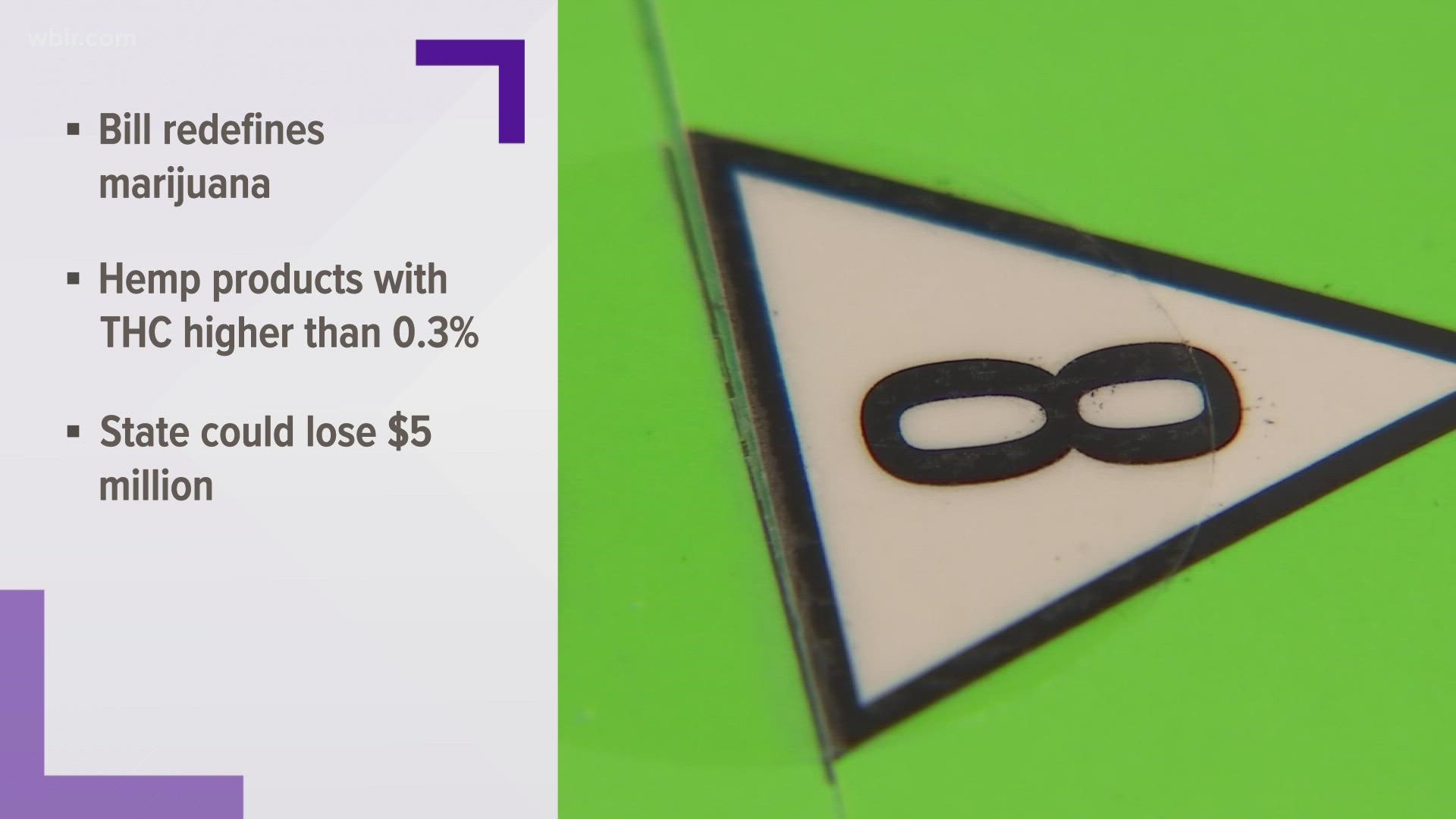NASHVILLE, Tenn. — The Tennessee General Assembly is taking up a bill that would effectively make Delta-8 THC products illegal in the state in most forms.
Currently, Delta-8 products are legal to sell and consume in Tennessee and most other states because the psychoactive THC is derived from CBD extracted from legal hemp.
Since the rise of Delta-8's popularity, lawmakers have expressed worries over its unregulated status. A bill in the Tennessee legislature, HB 1927, would regulate the substance by making it largely illegal over certain concentrations.
The bill is sponsored by Rep. William Lamberth (R-Portland). The proposed legislation calls for redefining marijuana, which is illegal in Tennessee, to include hemp and hemp products that have THC concentrations of more than 0.3 percent on a dry weight basis.
"Currently, hemp products containing the delta-8 cannabinoid, a form of THC, are unregulated at the state and federal level and are commonly sold across the state," the bill said. "The sale of such products is assumed to be due to the psychoactive effects of such cannabinoid. Such products are assumed to significantly exceed the concentration threshold of 0.3 percent."
The bill said it anticipates such a move to cause a decrease in sales, and therefore local and state tax revenue. Applied broadly, the fiscal impact suggests the legislation would apply to at least 75% of the market but said the exact percent is unknown.
In terms of financial impacts to the state, if passed it believes the state would lose nearly $5 million in revenue and nearly $2 million local revenue in subsequent years. The state does not believe the change would lead to a large increase in arrests, saying it assumes most retailers would stop selling the products.
Lawmakers placed the bill in the House Subcommittee for Criminal Justice for discussion on March 30.

